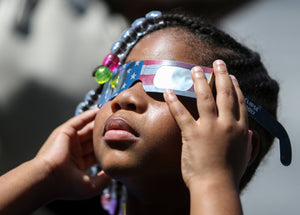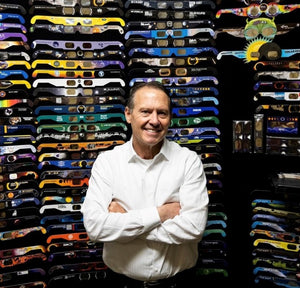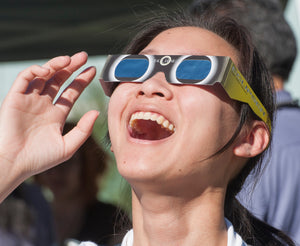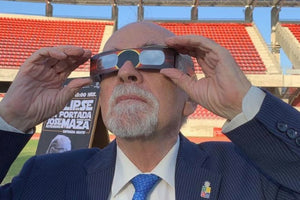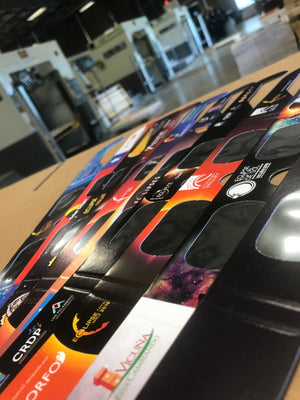How the solar eclipse changed one local company's business model

(8/28/2017) A local company made at least 40 million pairs of solar eclipse glasses this year. A final count is still being tallied — and the orders just keep coming.
According to American Paper Optics' director of marketing Jason Lewin, the new orders are coming from those who want to commemorate the August 21 total solar eclipse.
The Bartlett company was one of five American Astronomical Society-verified manufacturers that made eclipse glasses and handheld viewers that met international safety standards.
Lewin said that he did not yet have a revenue figure to share but that there was obviously a spike in the normal revenue stream, something that the company had been building up to for two years.
"Lots of time and energy — not to mention money — went into positioning ourselves to be the biggest and best eclipse glasses provider," he said. "That planning ultimately paid off."
The company sold bulk glasses online, but sold single sets at retailers such as Lowe's and Walmart stores.
When Memphians got wind that their glasses were being made locally, the demand ended up necessitating an American Paper Optics solar eclipse pop-up shop at the company's offices.
"It’s funny, we never planned to have a pop-up shop. In fact, we were against the idea of doing it all together," Lewin said. "Being a large manufacturer, the goal was to focus on building inventory while getting the 10,000 plus individual orders out per day. A couple of months before the eclipse, we began to field calls asking if folks could come by and purchase from the facility. The e-mails and calls soon turned into 30-40 people per day stopping by our location asking if they could purchase the glasses. We quickly realized that the only thing we could do to satisfy the local consumer was to provide the pop-up shop."
The shop opened a week before the eclipse and ran from 7 a.m. until 6 p.m. for a week. Lewin said the company had a couple thousand visitors daily.
"From 7 to 6, there was never a lull in people stopping by," Lewin said. "Each morning, before 7 a.m., people would begin waiting in line."
The company will balance the big spikes with lots of planning and preparing. And, lessons from this year's event will come in handy seven years from now, on April 8, 2024, when the next total solar eclipse will be visible from the United States.
"There certainly was not a blueprint for the demand that we saw during this eclipse," Lewin said. "It was wild watching it all unfold. Going from a few hundred orders a day to 14,000 plus, you are forced to completely change your entire operational structure. Everything completely changes overnight. You have to be ready to do whatever it takes to get the product out to the consumer. Even if that means doubling the staff and keeping the doors opened 24 hours a day, six to seven days a week. Planning and time management proved to be key in all of this. When 2024 comes around, our process will be absolutely flawless. We are already in the planning stages."
- Jason Lewin

